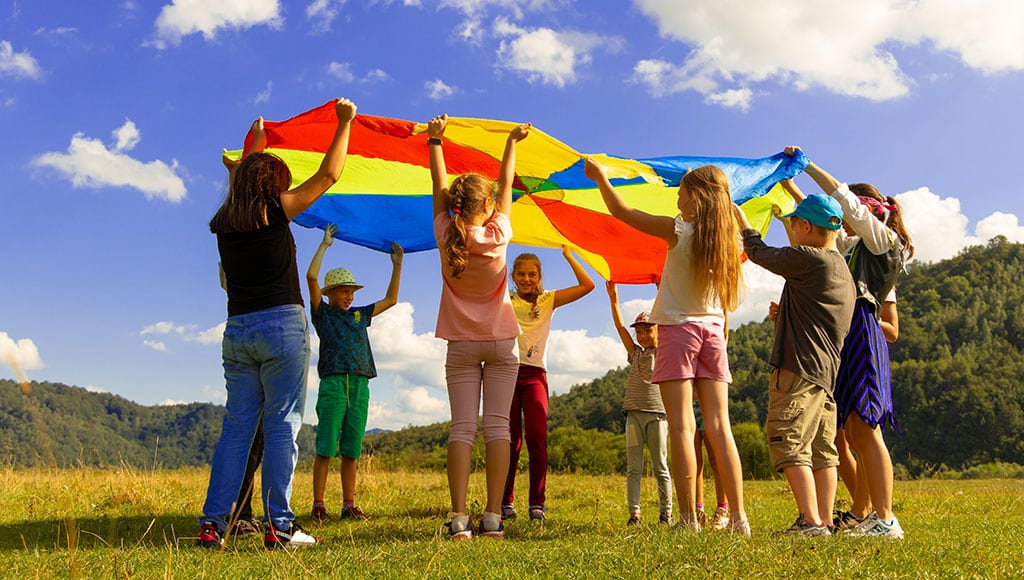As children, we learn some of the most important skills in life including coping skills, just by interacting with parents, siblings and friends.
We learn to share, be kind, play, cooperate, communicate positively and negatively, be compassionate, have empathy, interact verbally and non-verbally; how to be nice and not be nice, how to play together and play alone.
Children make friends, lose friends, meet others who like them or don’t like them. They’re welcomed into the group or rejected. They bully, they are bullied and hopefully learn to deal with bullies. These are all valuable life lessons.
All of these experiences – happiness, joy, surprise, sadness, shock, hurt, pain, trauma, disappointment, learning, love, peace, observation, intuition, respect, independence, dependence, reliance, confidence, lack of confidence, courage or lack of courage, cooperation, disruption, strength to defend and protect, weakness and compliance – in the life of a child have emotional consequences and help develop the child’s personality, character and coping skills, or lack of coping skills.
Coping is a set of skills or behavioural strategies we use to manage difficult events, situations or people. Our coping skills and strategies reduce the demands and pressures we feel and enable us to function normally. Coping involves many approaches; we can correct or remove the stressor; we may change our thinking about the stressor, or we could even decide to tolerate and accept the stressor.
Sometimes, when we have to cope with a relationship conflict, we may decide to leave or develop strategies to deal with the difficulties in the relationship. We may decide to stay and lower our expectations, or we may seek counselling to help resolve the issues in the relationship.
Coping takes many forms and, like our stress response, is multi-layered and can be complicated. Sometimes we get coping and defence mechanisms mixed up. Coping improves the quality of our life, while defence mechanisms, temporary escape mechanisms, are ways of dealing with stressors that eventually cause more stressors for us, can make our problems worse and may even result in new symptoms of stress-related illness.
We all cope differently. Basically, coping is continually changing cognitive and behavioural efforts to manage specific external or internal demands and pressures that we assess as difficult. We are adaptive creatures. Like stressors, how we cope is subjective, unique and individual to all of us. However, how we cope dictates the quality of our lives and the lives of the people around us, so the goals of coping should always be to reduce the intensity and duration of the stressor and reduce the likelihood that our response to the stressor will lead to illness. Effective coping should always reduce the stressor and minimise all negative health outcomes, which brings us to control.
So, why are some things difficult and stressful for us causing damage to our health and wellbeing (distressors), while other things are difficult and stressful but not causing damage to our health and wellbeing (challenges)?
To understand these differences, health psychologists developed ‘The Attribution Theory’, which basically states that we all see our social world as predictable and controllable. I won’t bore you with the details, but when it comes to stressors, an important part of this theory is what we call Health Locus of Control.
Put simply, this means we all differ when it comes to what we feel we can control; what we feel is within our control = our internal locus of control, as opposed to what we feel we cannot control and is controlled by the world outside us = our external locus of control.
So, basically, the difference between good stressors and distressors, or bad stressors, is our belief of whether we have any control over the situation, event or person we are confronted with.
Think about this for a few minutes. Really, think about it. Where is your locus of control? Is it internal or external? Do you trust your own mental strength, intellect, perception, reasoning and thinking? Are you confident enough to make your own decisions based on the information gathered, even if you don’t always get it right? Do you believe in yourself? Or do you mostly depend on people in your external environments to make all the decisions for you? Do you just follow them? How are your coping skills?
Control means coping. When I say control, I mean our internal abilities; our confidence, optimism, belief, motivation and determination combined with our external resources; friends, family, community, technology, etc; everything we need to cope with the challenge or the stressor.
If we possess all these resources, the stressor is a challenge; if not, the stressor is a dis-stressor. We believe we can cope with our challenges because of our internal locus of control. We believe we cannot cope with our dis-stressors because of our external locus of control. Coping is all about how much control we believe we have over our stressors.
But sometimes, we just have to accept we have no control and face the fact the not every stressor is controllable. At these times, the only thing we can do is accept our lack of control and focus on looking after ourselves while waiting for more clarity. Having a feeling of ‘no control’ and the perception that everything depends on someone or something else is a stressor in itself.
So, while we wait for clarity, our thoughts and behaviours should be focused on relieving the effects the stressor has on us by focusing on our own health and wellbeing. Our job is always to relieve the stress response by lowering cortisol levels as quickly as we can, by increasing our “feel-good hormones”; dopamine, serotonin, endorphins and oxytocin.
We increase these hormones by doing simple things like exercising, listening to music, spending time outdoors walking, cycling, swimming, etc. Never forget, the quickest way to lower cortisol levels is hugging someone you love.
By Joan Maycock
Joan Maycock MSc Health Psychologist. Stress and Burnout Specialist. Stress and Burnout Programme Developer. Mediator, Consultant, Trainer. Providing one on one stress and burnout sessions and stress and burnout educational workshops designed to get everyone thinking about reducing, preventing and managing stress and burnout.
915 793 592 | mindsynergyint@proton.me















